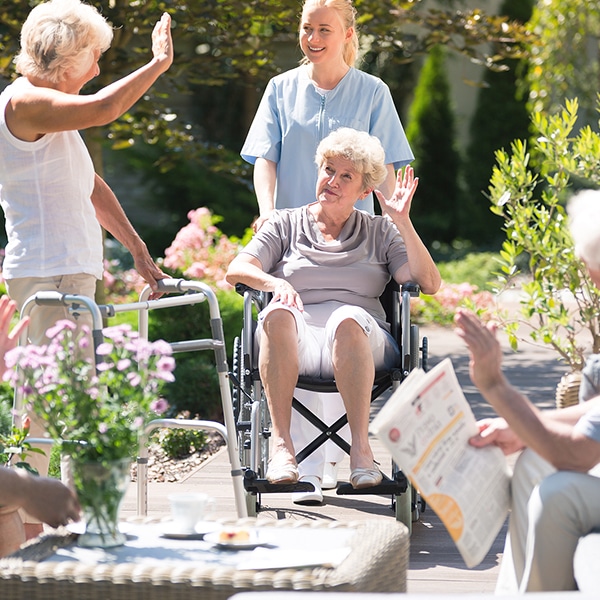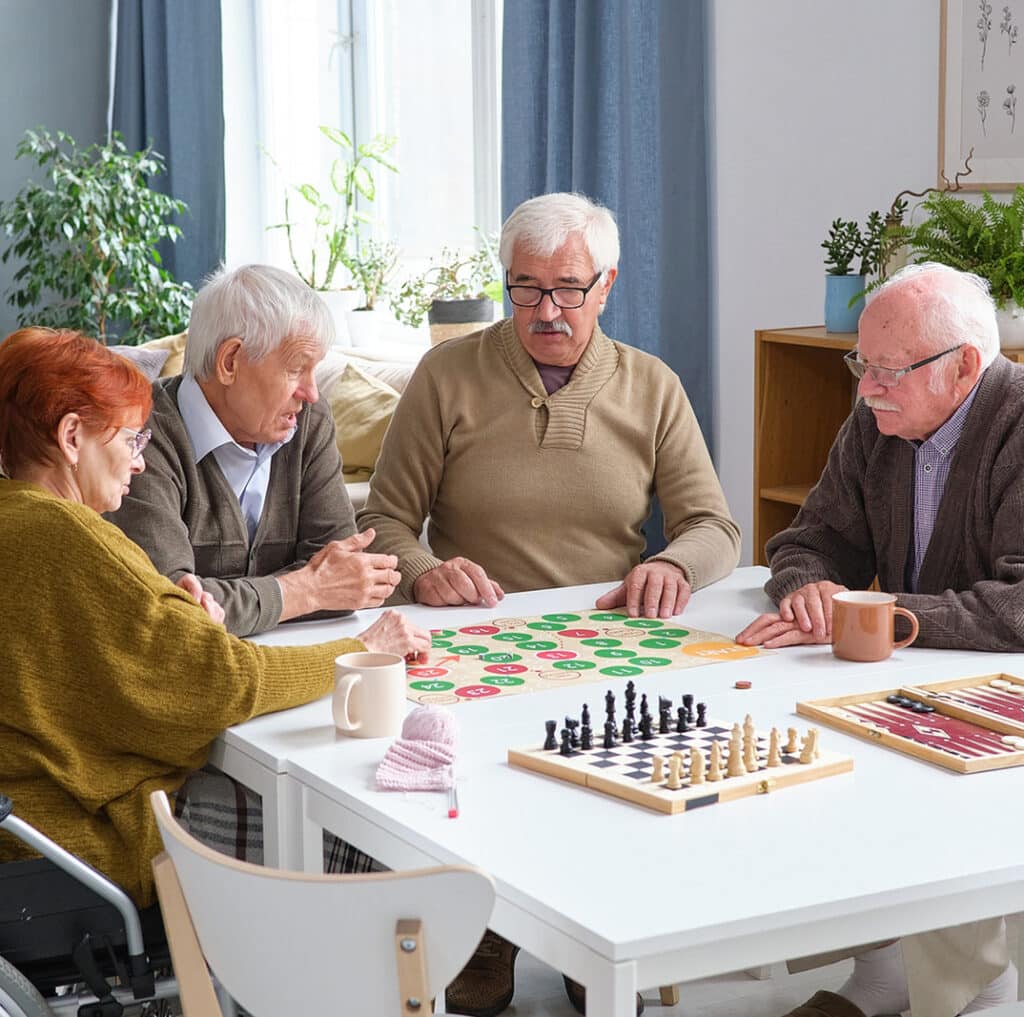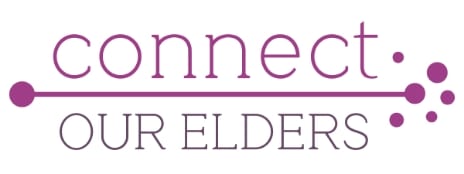Senior Housing
Connect Our Elders, in addition to believing so strongly in direct to consumer education, partners with home care agencies, care managers, senior housing placement processionals (not direct to communities as we believe families deserve to have the on-ground experts facilitating tours to various communities and the on-ground placement professionals truly understand the differentiators of each community option), legal/financial professionals so as to help Elders and their inner circle navigate and get connected to experts in each area.
It is not often families understand clearly what’s needed to adequately support their loved one in the aging experience and Connect Our Elders is here to provide empathetic, proactive education and navigation through the many resources that exist. Simply providing a list of resources to these families is not adequate. It does nothing to reduce overwhelm. However, making a confident, professional, direct recommendation does.
Three Levels of Senior Housing
- Independent Senior Living
- Assisted Living
- Memory Care
What is Independent Senior Living?
Independent living is simply any housing arrangement designed exclusively for older adults, generally those aged 55 and over. Since independent living facilities are aimed at older adults who need little or no assistance with activities of daily living, most do not offer medical care or nursing staff.
How Does Independent Senior Living Work?
Independent living preserves a senior’s independence while placing them in a community of like-minded people. It balances the many competing needs of today’s seniors by offering: A ready-made community that doesn’t intrude on privacy and help when a senior needs it, without compromising independence.
Independent living communities are designed for active adults. Their residents are ready to trade in the years of often overwhelming yet fulfilling responsibilities that may have included raising children and having a meaningful career. Although they wouldn’t have had it any other way, now they’re ready to experience time that they can truly call their own.
What Are the Benefits of Independent Senior Living?
Simplicity and freedom – They don’t have to deal with the expense and hassles of taking care of the house or yard anymore. If they don’t want to cook, they don’t have to – or do dishes. They have more time to do the things they love and to pursue new interests.
Staying active – A comment you’ll hear a lot is, “There’s so much to do here you can’t fit it all on your calendar.” It’s not uncommon for residents to realize just how little they were actually doing when they still lived in their house. With so many opportunities right at their fingertips, they can be as busy as they want.
Social connections – The effects of social isolation can be devastating to your physical and mental well-being. As an independent living resident, social opportunities are built into daily life, from informal get-togethers with friends to resident clubs, outings and parties.
Access to care – As healthy as you may be now, you just don’t know if or when your health (or the health of your loved one) will change. Making the choice to move to independent living has been a blessing to many residents who had an unexpected health problem. They didn’t have to worry about where to find the care they needed, and didn’t have to move out to get it.
What is the Difference Between Independent Senior Living and Assisted Living?
Independent living communities primarily focus on serving the social needs of residents, as many are able to live independently without much support. Assisted living communities support those who need assistance with activities of daily living, while allowing residents to live as independently as possible.
What is Assisted Living?
Assisted living is a type of housing designed for people who need various levels of medical and personal care. Living spaces can be individual rooms, apartments, or shared quarters. The facilities generally provide a home-like setting and are physically designed to promote the resident’s independence.
What are the Benefits of Assisted Living?
Having 24/7 Assistance and Supervision
In an assisted living community, there are always staff around to keep a lookout and provide immediate help should any accidents occur. Neighbors, friends, and fellow residents can also check in on one another.
Fitness, Movement, and Nutritious Meals
Many assisted living communities provide excellent fitness amenities and senior-specific programs to enhance the health and fitness of the residents. On top of that, dining options like restaurants implement nutritionist-approved menus, ensuring your loved ones will get delicious and nutritious meals daily.
Strong Community Support
By being part of a community, seniors can reignite their love for life by fostering new connections and support with other residents. Your loved ones can find friends sharing the same hobbies and interests, which further enhances their feeling of support and belonging to the community. The extra bond will also lead to higher attendance for the scheduled activities and events that are specially designed for residents.
Customized Care Plans
An assisted living community takes into account all the residents with varying medical or dietary needs and ensures these are strictly adhered to by the staff on-site. For instance, residents with diabetes will receive very different care and treatment than those who suffer from dementia. Your loved ones will be given highly personalized care plans that cater to the required medical or social needs.
Holly Slade is a compassionate senior care advisor and sounding board. She enjoys connecting with seniors and their loved ones, carefully listens to the needs, goals and concerns of her clients and provides care options and resources.
We recommend and set-up exceptional Independent Senior Living in Des Moines and throughout the Western Washington area.

Does Medicare Pay for Independent Living or Assisted Living?
Medicare does not cover any cost of Independent Living or Assisted Living. It will pay for most medical costs incurred while the senior is in independent living, but will pay nothing toward custodial care (personal care) or the room and board cost of independent living.
Navigating senior care options can be difficult, especially if you live in a different area from your loved ones. Our Care Navigators will educate you, and aid in your process of locating and deciding on which care meets your needs.
What is Memory Care?
Memory care facilities provide individuals with a secure environment that prevents wandering. Your loved one can be easily monitored in this kind of space which promotes independence and reduces confusion. These facilities’ design prevents wandering and encourages safe outdoor activities for residents.
What are the Benefits of Memory Care?
When a loved one is in need of extra care, you want to be sure you choose a living space with the best available assistance. If this family member has Alzheimer’s, dementia, or other memory disorders, there may be a better option than a traditional assisted living center.
A memory care facility offers more comprehensive and unique care to these individuals.
Specialized Care
A memory care facility provides specialized care and assistance to residents with memory disorders, in addition, to helping with daily activities.
Structured and supervised activities are provided in a way that still allows for some independence within a safe and secure environment. The facility is designed to reduce the risk of danger when residents wander or become disoriented by their surroundings.
Better Quality of Life
With more specialized care, individuals often take fewer medications, which means fewer negative side effects.
Great care is taken to help reduce the number of falls, injuries, and accidents resulting in hospital visits, as well as increased nutrition and wellness. All of these factors lead to a higher quality of life, and often to improvement or maintenance of mental functioning.
Increased Socialization
Most memory care units are in a separate wing or section of a larger residential care facility.
This allows staff to provide continuous care as well as specialized social and therapeutic programs to keep residents engaged. Activities like games, social events, and fitness classes are provided for entertainment and health purposes.
Support for Families
Memory care facilities create an environment that is positive for both residents and their families with outreach programs designed to educate and encourage family members. You can rest easy knowing your loved ones are being given the best care around the clock and there are resources available to you when you have questions or need support.
Highly Trained Staff
Nurses and team members in memory care facilities often have specialized training or experience working with patients with Alzheimer’s and other memory disorders, as well as additional ongoing training. Memory care centers generally also have fewer patients per staff member to allow for extra attention and assistance.

Be present in your relationship with your loved ones, let us be your Care Navigator. Connect with us for a FREE comprehensive phone assessment.
The Connect Our Elders Process
Connect Our Elders helps you to decide what the right choice is based on geographic location, care needs, urgency, individualized characteristics of your loved one, you, and the possible caregiving agencies.
- Provide a FREE phone ASSESSMENT to discover the needs of the senior client.
- We educate family members about the level of care needed and provide a plan of care.
- We make direct recommendations for services in your local area. These are trusted senior care providers that we work with often.
- Assist with the decision-making process while integrating seniors’ health, care needs, financial considerations, social interests, and geographical preferences.
- Recommend additional resources, such as moving, VA Benefits, Legal, etc.
- We follow-up to continue building relationships and confirm senior transition (or in-home services) has been successful and fulfilling.
Connect Our Elders is a trusted resource in making difficult, crucial decisions regarding care planning and care options for yourself and/or your loved one. These decisions fall into several categories:
- Personal Care/Non-Medical Home Care
- Care Management
- Placement Into a Senior Community
- Independent Living
- Assisted Living
- Board & Cares
- Memory Care
- Legal/Financial Resources to ensure proper planning has been done
- Alternative resources to pay for care
- Veterans’ resources
- Community resources
- Technology resources to support empowered aging wherever you call home
It is not often families understand clearly what’s needed to adequately support their loved one in the aging experience and Connect Our Elders is here to provide empathetic, proactive education and navigation through the many resources that exist. Working with Connect Our Elders as your navigator reduces overwhelm, stress, fear of the unknown creating space for you to focus your energy on your relationship with your loved one rather than becoming a full-on student having to learn the eldercare industry, being a caregiver, or a care manager. Be present in your relationship with your loved one and let Connect Our Elders do the rest.

